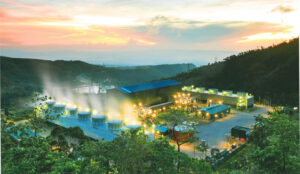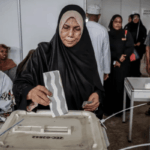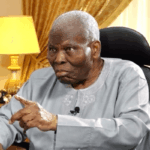
SINGAPORE – First Gen Corporation has called for stronger government support to accelerate geothermal energy development in the Philippines and maintain the country's position among the world's leading producers.
Geothermal has not received enough policy attention in recent years, J. Joel Soriano, First Gen's vice president and head of strategy and planning, said on the sidelines of the Asia Clean Energy Summit here.
“When the government looks at geothermal, they see it as an old technology, which is why for a long time we have not been getting any government support,” he said.
He said geothermal development has recently gained policy focus with the launch of the government's fourth green energy auction, which offers renewable energy developers the opportunity to secure power supply contracts through competitive bidding.
The Philippines has an installed geothermal capacity of 1,952 megawatts (MW), making it the world's third largest producer.
“From a technology perspective, we are seeing that traditional geothermal still makes sense, but to expand and maintain our leadership position, we have to start looking at other technologies that are still quite early,” Mr. Soriano said.
He said geothermal projects require substantial upfront investment to confirm viable resources.
He said, “Our costs are very disproportionate up front – capital investments to build roads, to drill two or three wells before we know we'll get anything. These are huge capital investments.”
The government plans to open a $250 million geothermal derisking facility by the second half of 2026 to help deal with exploration risks. The facility is designed to share the costs of exploration and drilling, covering up to 50% of expenses through a loan convertible into a grant if drilling fails.
First Gen, one of the country's largest renewable energy developers, has about 1,300 MW of renewable capacity from geothermal, solar and wind.
It also operates natural gas-fired power plants in Batangas with a combined capacity of 2,017 MW. – Sheldeen Joy Talavera










